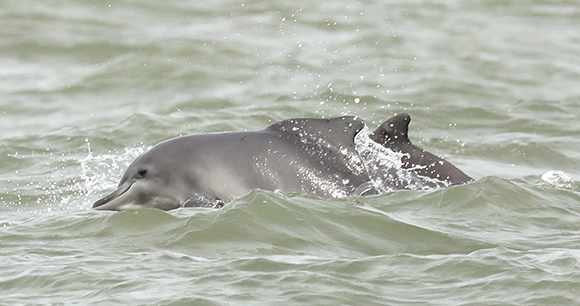ESA Protections
In August 2022, the US Fish and Wildlife Service (USFWS) published a positive 90-day finding regarding a petition from the sea urchin fishery in California to remove the southern sea otter subspecies (also known as the California sea otter) from the Endangered Species Act (ESA) list of threatened species. The USFWS is currently performing a species status review, which will inform the agency’s 12-month finding on whether delisting is warranted.
The southern sea otter was hunted ruthlessly by 18th and 19th century fur traders and, by the 1930s, was thought to be extinct—until a remnant population was found sheltering in the Monterey Bay area. The subspecies was listed as threatened under the ESA in 1977, and the population has grown to about 2,900 since—a mere fraction of its historical population size. AWI submitted comments asserting that the delisting petition fails to present sufficient evidence that the southern sea otter has recovered and no longer needs ESA protection.

A listing under the ESA could raise the profile of this little-known species, make more funding available for essential research to scientists working with Atlantic humpback dolphin populations, and foster international cooperation to improve conservation efforts. NMFS made a positive 90-day finding on our petition, triggering a year-long status review. Meanwhile, an international group of biologists and others have formed the Consortium for the Conservation of the Atlantic Humpback Dolphin(CCAHD), which has made good progress with field studies and stakeholder engagement efforts. NMFS consulted extensively with CCAHD during its status review and issued a proposed rule to list the species as endangered in April. Following the comment period, which ended June 6, NMFS will have until April 2024 to make a final decision.
Program Terms: Marine Wildlife
AWI Quarterly Terms: Government/Legal, Quick Read
Related News
North American Environmental Commission Confirms Mexico’s Role in Imperiling Vaquita
In Program: Marine WildlifeA commission under the United States-Mexico-Canada Trade Agreement (USMCA) released a report yesterday confirming that Mexico’s unwillingness to enforce its own wildlife protection, trade, and fisheries laws...
Captive dolphins face uncertain futures. They deserve better
In Program: Marine WildlifeIn this op-ed for the Tampa Bay Times, Dr. Naomi Rose, AWI’s senior scientist in marine mammal biology, discusses the challenges in caring for orcas...
Yahoo! Japan Sells Polluted Whale and Dolphin Meat Products to Unsuspecting Consumers
In Program: Marine WildlifeThe Animal Welfare Institute (AWI) and an international coalition of animal protection and environmental groups are calling on Yahoo! Japan and its parent company, the...
As Iceland Calls Off Fin Whale Slaughter, Japan and Norway Launch Cruel, Unsustainable Whale Hunting Seasons
In Program: Marine WildlifeJapan and Norway resumed slaughtering whales this month, while Iceland’s only fin whaling company has decided that it will not hunt this summer, citing a...